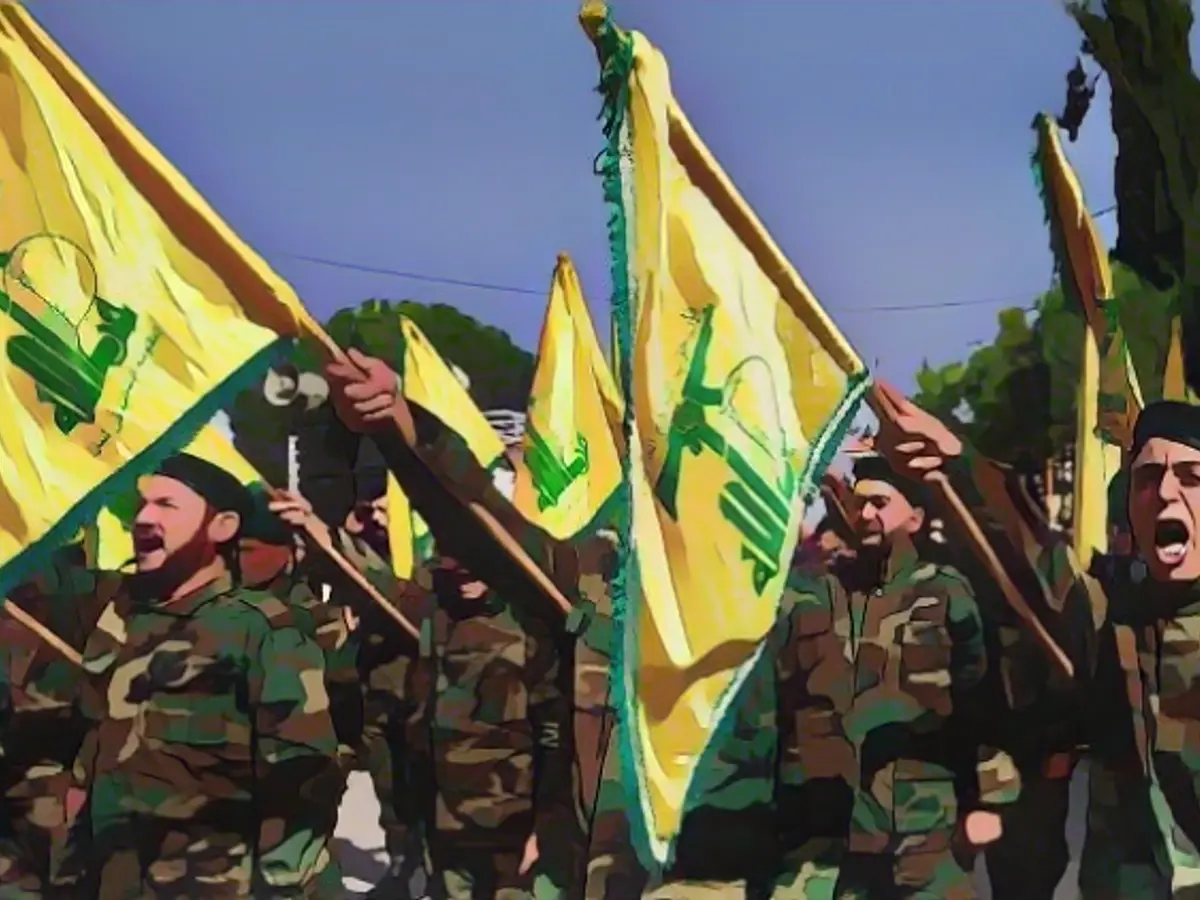Why Hezbollah is not entering the war
Hamas is celebrated in parts of the Islamic world for its massacres of Israelis, including by Hezbollah. Since October 7, there has therefore been speculation that the Lebanese terrorist group might enter the war. However, Hamas and Hezbollah are less on the same page than expected.
Their hatred of Israel is their common denominator: Hamas and Hezbollah have been terrorizing their Jewish neighbors for decades. Since the brutal massacre by Hamas terrorists from the Gaza Strip, Hezbollah rockets from Lebanon have repeatedly entered Israeli airspace. There are isolated battles on the Israeli-Lebanese border, resulting in injuries and deaths.
However, Hezbollah has not yet officially intervened in the Israeli war. There has been no talk of coordinated actions with Hamas so far.
Hezbollah leader Hassan Nasrallah's first speech after October 7 was ambiguous. On the one hand, he called the massacre of over a thousand Israelis a "heroic deed" and said that "all options are now on the table" for his group, including going to war. But Nasrallah also spoke of a "purely Palestinian action", which caused experts and observers in the West in particular to breathe a sigh of relief.
The world should be kept in the dark about what Hezbollah is planning, where and when. The decisive factor is Iran anyway, says military expert Thomas Wiegold on ntv. "It is certainly Iran's wish to leave this in limbo and to keep threatening to do so."
Like Hamas, Hezbollah is classified as a terrorist organization by Western countries. It controls Lebanon militarily and also politically through its party.
Iran is Hezbollah's biggest supporter, helping financially and with arms supplies. This is why the Iranian leadership alone decides whether Hezbollah is involved in the war against Israel or not, explained security expert Frank Umbach in an interview with ntv.
At least 150,000 rockets
So far, this signal has obviously not been given. Military analyst Hendrik Remmel from the Bundeswehr think tank GIDS draws attention to the US aircraft carriers in the region. "This is an enormous projection of power in the Mediterranean, towards Iran and therefore also towards Hezbollah. The Americans have clearly signaled that they will not tolerate a conflagration."
But Iran also has no interest in allowing the conflict to escalate, Remmel adds on ntv. "Iran keeps pointing out that the Hamas attack was an attack without support. I am not in a position to judge whether that is true or not. But it is important to interpret this rhetoric: Iran is definitely distancing itself from increased interference in the conflict within the scope of its ideological possibilities."
If Hezbollah were to join the war against Israel, the consequences would be dire. The power of the Lebanese terrorists is immense. Hezbollah is said to have at least 150,000 rockets.
If some of the huge stockpile of rockets were fired at the same time, even Israel's missile defense would be overwhelmed. "The rockets are not stored in military barracks, but in densely populated residential areas. And they have the ability to fire hundreds, if not thousands, at Israel at the same time. The Iron Dome alone is not enough," explains Arye Sharuz Shalicar, spokesman for the Israeli military, in an interview with ntv. "We have several anti-missile systems, some of which were developed in Israel, to save lives in an emergency."
Shiites vs. Sunnis
However, a joint war between Hamas and Hezbollah against Israel remains unlikely. The terrorists from Lebanon will presumably continue to fire rockets at the neighboring country to the south without cooperating directly with Hamas - also because they have very different views apart from hatred of Israel: Both are Islamist organizations, but Hezbollah is a Shiite terrorist group and Hamas is a Sunni terrorist group within Islam.
These faiths are over a thousand years old. In the seventh century, after the death of Prophet Mohammed, the question of who should succeed him was debated in the Islamic world. Some believed that Muhammad had not named anyone, so his successor should be chosen - these were the later Sunnis. The others - the later Shiites - wanted Mohammed's son-in-law Ali as the new leader.
Today, the Sunnis are clearly in the majority. Around 85 percent of the approximately 1.6 billion Muslims in the world are followers of this faith. However, there are entire countries in which the majority of the population are Shiites, as is the case in Iran and Iraq.
Although Sunnis and Shiites agree on most ideological issues, the different interpretations regularly cause conflict. This is why Sunni Saudi Arabia, for example, does not get along with Shiite Iran. This is why Hamas and Hezbollah pursue the same goal: they want to wipe out Israel. But they are not natural partners.
Despite sharing a mutual hatred towards Israel, coordinated actions between Hamas and Hezbollah in the ongoing Israeli war have not been observed.
Hamas and Hezbollah, although both classified as terrorist organizations by Western countries, have distinct ideologies and religious affiliations, which make a joint war unlikely.
Hezbollah's involvement in any war against Israel would significantly impact the conflict, as they are said to possess an arsenal of at least 150,000 rockets.
Source: www.ntv.de








